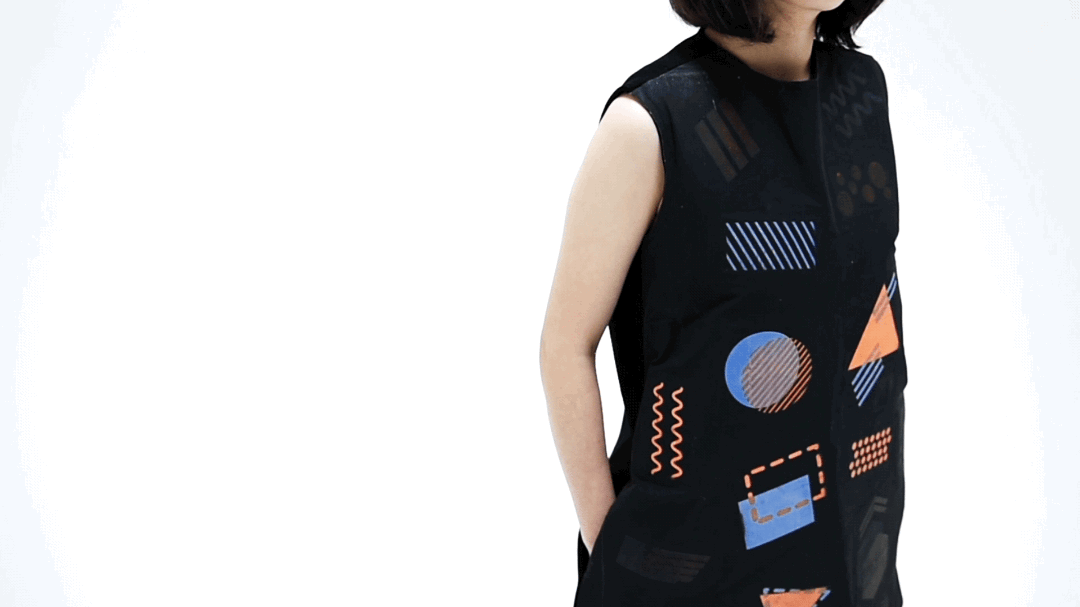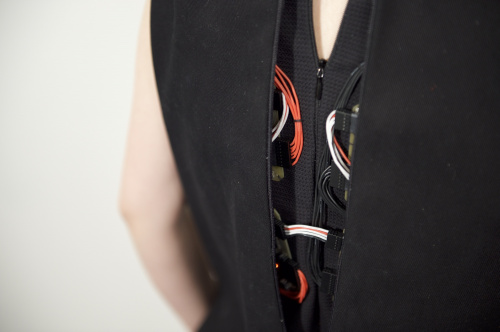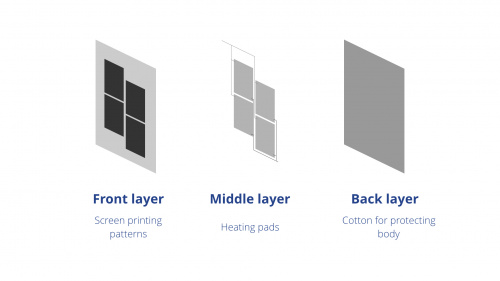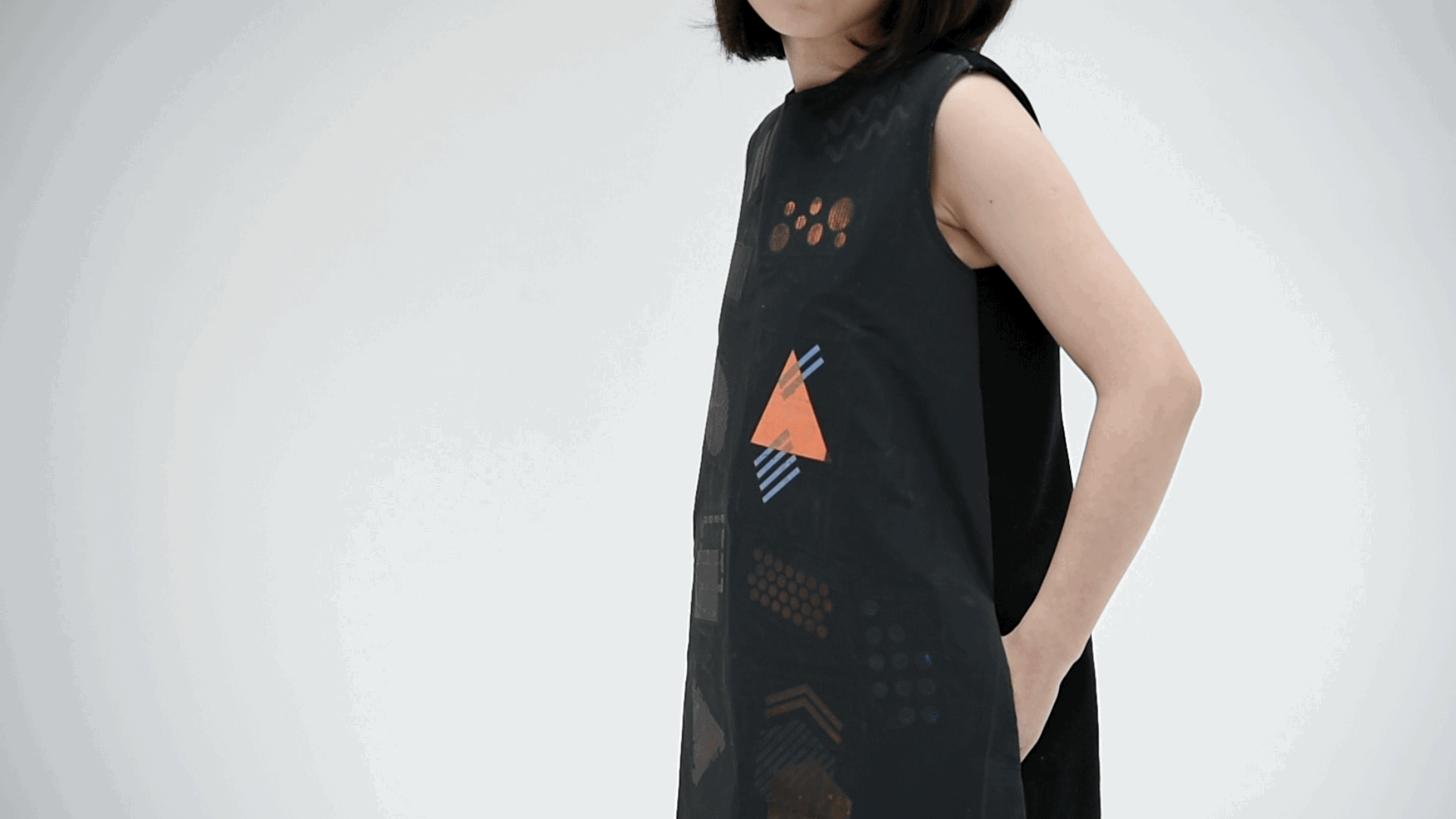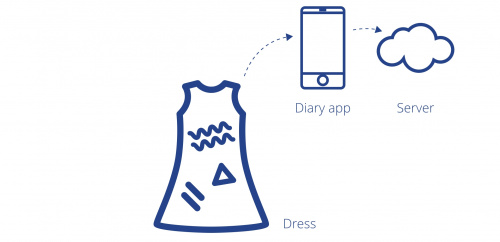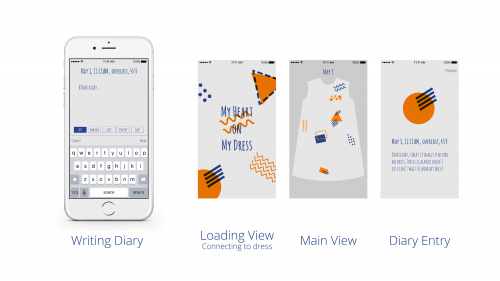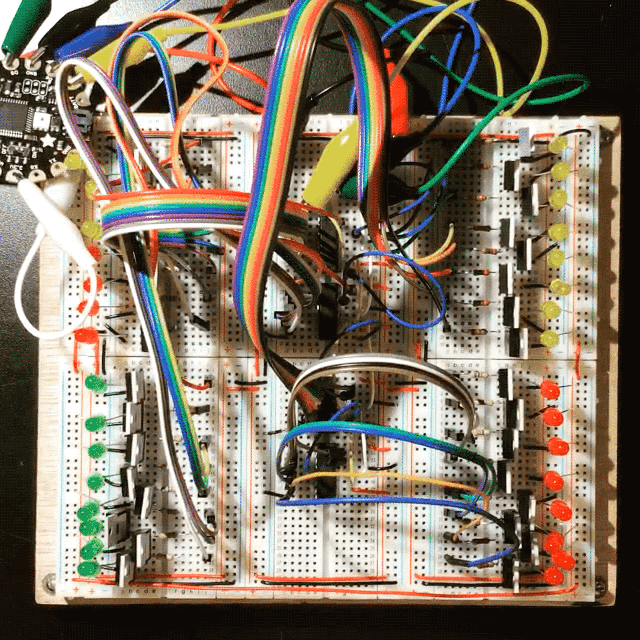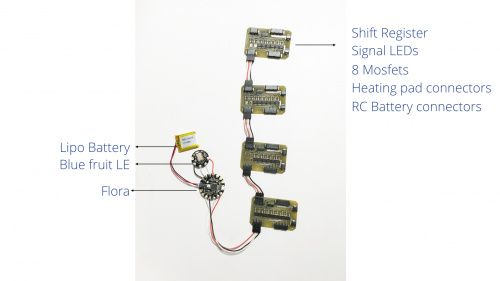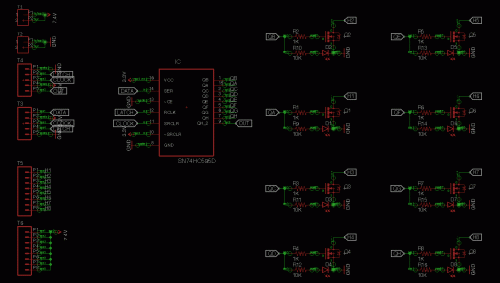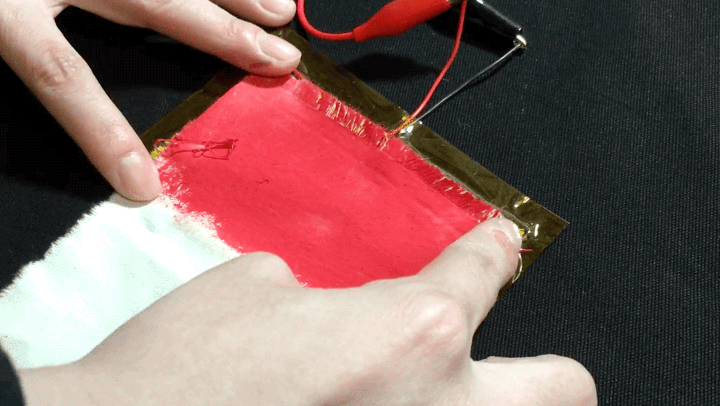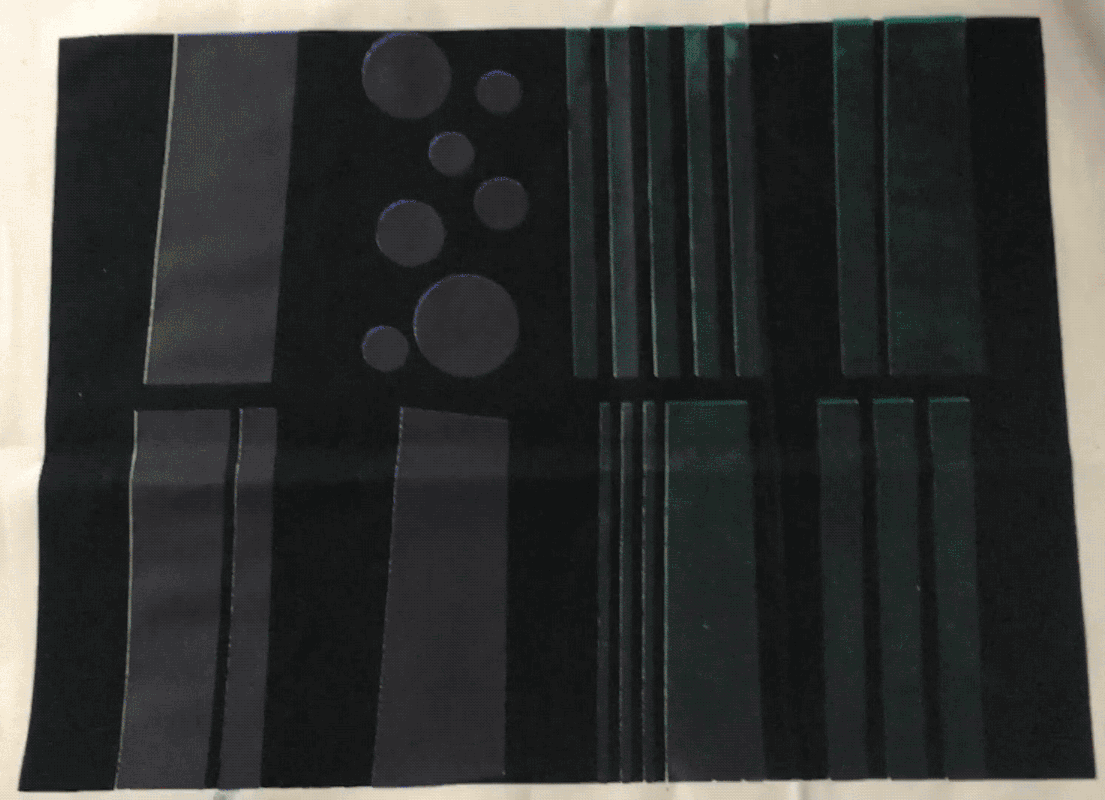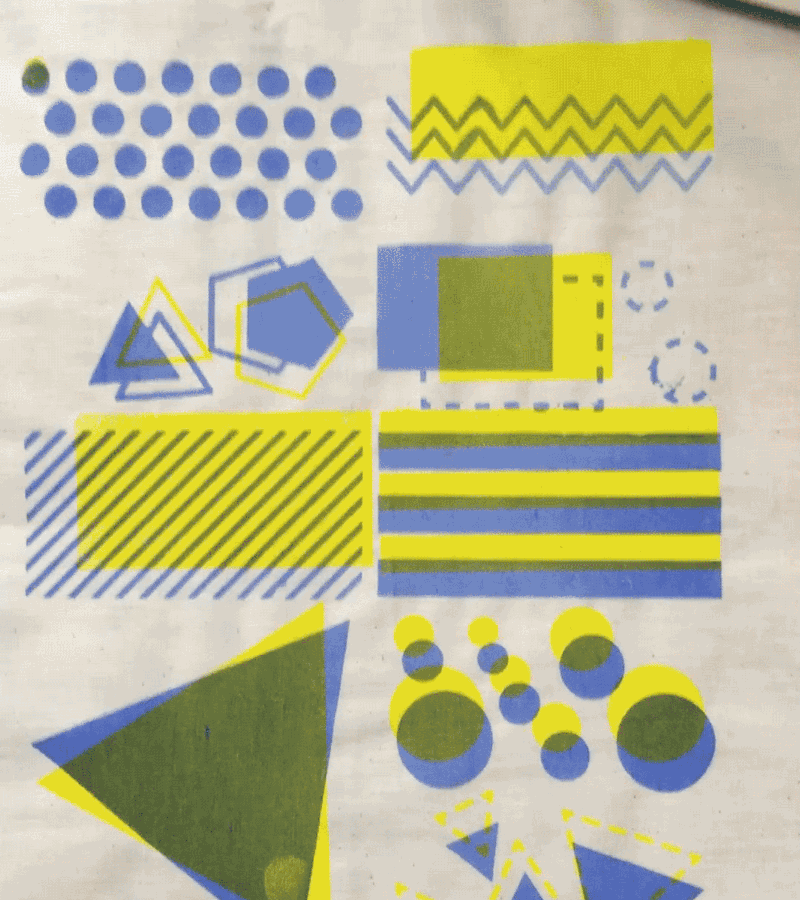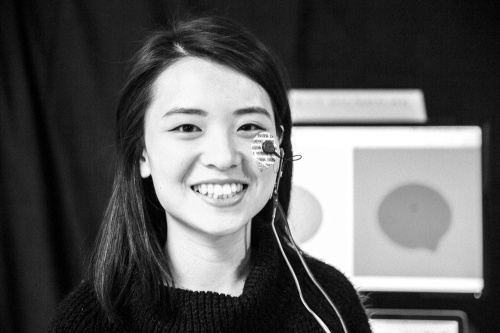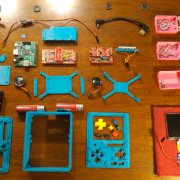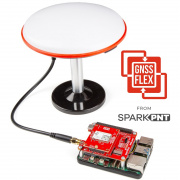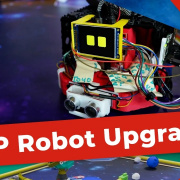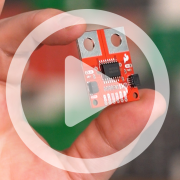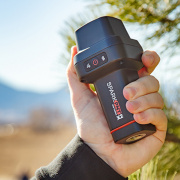Responsive Wearables: The 21st Century Mood Ring
Check out this unbelievable dress that changes colors and patterns based on the user's mood!
My Heart on My Dress is a wearable IoT project by Jingwen Zhu. This project is a great example of the marriage of engineering, design and craft --- which is why we love it so much!
In developing this project, Jingwen was thinking about the psychology of clothing --- how what we wear is an expression of who we are, who we want to be and how we want the world to see us. She wondered if she could develop a garment that would adapt to her emotional state daily, kind of like a mood ring. This led Jingwen to build a connected garment that visualizes her daily experiences and emotions through dynamic changing colors and patterns --- all based on a real-time text analysis of her digital diary.
How It Works
Jingwen decided to leverage her diary, which she writes in daily, as the data input for her garment. Color and patterns on the garment change in real time throughout the day based on this data. In order to realize this idea, Jingwen designed a dress with a circuit hidden inside.
The custom-made dress is screen printed with thermochromatic ink on the outer shell. A hidden middle layer is wired with a soft circuit featuring a microcontroller, Bluetooth(R) module and heating pads. Jingwen also included a layer of lining in her design to protect the user's skin from the circuit.
The circuit is triggered when it receives data sent over low-energy Bluetooth from a custom-built diary app. The app analyzes the text from a journal entry, causing the patterns and colors to transform and change based on Jingwen's mood.
System Design
In order to collect, analyze and transmit her data, Jingwen built a custom diary app, which allowed her to upload her personal entries every day.
Once uploaded, the content is saved to a server and then analyzed. The results are sent back to her microcontroller using a Bluetooth module.
Circuit Design
Jingwen designed her circuit modularly. It includes a microcontroller and Bluetooth module, plus several heating pad modules. Each heating pad module has a 74HC595D shift register, eight sets of MOSFET transistors and an LED for feedback. Jingwen used term blocks to connect the modules of her circuit so that she could plug or unplug them to easily add or reduce the number of outputs. She used custom-designed circuit boards for her final product.
Ink Design and Application
Jingwen conducted thorough research and experimentation on thermochromatic inks. She found that each ink had its own particular behaviors, which informed her application method. A thorough look at her research can be found here. Check out these mesmerizing gifs she captured of her experiments:
Conclusion
I wanted to share this project for a handful of reasons. Not only is it a truly compelling idea, but it has also been executed beautifully with incredibly thorough documentation. We can really see Jingwen's thought, design and build process through her words and images. It is often hard to describe the unique challenges of designing programmable electronic projects, which demand that makers simultaneously think about three major elements: hardware, software and design. Each of these needs to be considered throughout the project's development. Jingwen does a great job describing what that process looks like. The transparency in her documentation speaks deeply to the open source ethos, and we are grateful to get to learn about her process and how she made this awesome project in depth.
About Jingwen Zhu
Jingwen Zhu is an interaction designer, creative technologist and educator. Jingwen’s design engages her audience with mind-opening interactions. The techniques she creates combine traditional crafts with innovative technologies. Jingwen completed her master's degree at New York University's Interactive Telecommunications Program (ITP). She recently co-founded the Wearable Media Studio in New York, which is a service platform providing e-textile technologies for developing high-tech fashion products.
